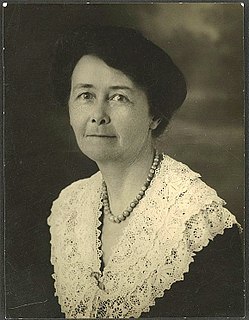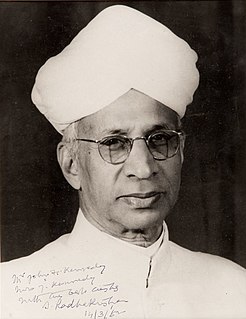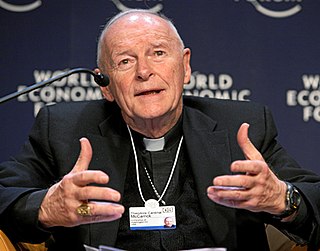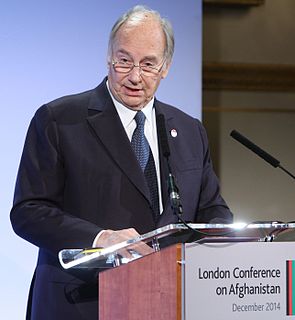A Quote by Miles Franklin
Before I was ten I became critical of the anthropomorphic God as interpreted in the churches. I did not warm to One thus revealed as the semblance of a bullying and mean old man who must have all his own way, be praised all the time and for attributes which were deplorable in us.
Related Quotes
A man may act as proxy for his own relatives; the ordinances of the Gospel which were laid out before the foundations of the world have thus been fulfilled by them, and we may be baptized for those whom we have much friendship for; but it must first be revealed to the man of God, lest we should run too far.
According to the technical language of old writers, a thing and its qualities are described as subject and attributes; and thus a man's faculties and acts are attributes of which he is the subject. The mind is the subject in which ideas inhere. Moreover, the man's faculties and acts are employed upon external objects; and from objects all his sensations arise. Hence the part of a man's knowledge which belongs to his own mind, is subjective: that which flows in upon him from the world external to him, is objective.
By His gracious condescension God became man and is called man for the sake of man and by exchanging His condition for ours revealed the power that elevates man to God through his love for God and brings God down to man because of His love for man. By this blessed inversion, man is made God by divinization and God is made man by hominization. For the Word of God and God wills always and in all things to accomplish the mystery of His embodiment.
Don't neglect your critical faculties. Remember that God is a rational God, who has made us in His own image. God invites and expects us to explore His double revelation, in nature and Scripture, with the minds He has given us, and to go on in the development of a Christian mind to apply His marvellous revealed truth to every aspect of the modern and post-modern world.
All that is limited by form, semblance, sound, color is called object. Among them all, man alone is more than an object. Though, like objects, he has form and semblance, He is not limited to form. He is more. He can attain to formlessness. When he is beyond form and semblance, beyond "this" and "that," where is the comparison with another object? Where is the conflict? What can stand in his way? He will rest in his eternal place which is no-place. He will be hidden in his own unfathomable secret. His nature sinks to its root in the One. His vitality, his power hide in secret Tao.
God is going to reveal to us things He never revealed before if we put our hands in His. No books ever go into my laboratory. The thing I am to do and the way of doing it are revealed to me. I never have to grope for methods. The method is revealed to me the moment I am inspired to create something new. Without God to draw aside the curtain I would be helpless.
If it were not for the Eucharist, if it were not for this marvelous manifestation of God's love, if it were not for this opportunity to place ourselves in the very real presence of God, if it were not for the sacrament that reminds us of His love, His suffering and His triumph, which indeed perpetuates for us His saving sacrifice on the cross, I am sure that I could never face the challenges of my life, my own weakness and sinfulness and my own need to reach out to the Living God.
Appearances can be deceptive. The fact that we cannot see what God is doing does not mean that He is doing nothing. The Lord has His own timetable. It is we who must learn to adjust to it, not vice versa. When God's time comes nothing will stand in His way. We can therefore wait for Him with this happy confidence: "As for God, His way is perfect" (2 Samuel 22:31).
First therefore let us seek the dignity of knowledge in the archetype or first platform, which is in the attributes and acts of God, as far as they are revealed to man and may be observed with sobriety; wherein we may not seek it by the name of Learning; for all Learning is Knowledge acquired, and all Knowledge in God is original: and therefore we must look for it by another name, that of Wisdom or Sapience, as the Scriptures call it.
In Islamic belief, knowledge is two-fold. There is that revealed through the Holy Prophet (s.a.s.) and that which man discovers by virtue of his own intellect. Nor do these two involve any contradiction, provided man remembers that his own mind is itself the creation of God. Without this humility, no balance is possible. With it, there are no barriers. Indeed, one strength of Islam has always lain in its belief that creation is not static but continuous, that through scientific and other endeavours, God has opened and continues to open new windows for us to see the marvels of His creation
Christianity exhorted man to set himself up against Nature, but did so in the name of his spiritual and disinterested attributes. Pragmatism exhorts him to do so in the name of his practical attributes. Formerly man was divine because he had been able to acquire the concept of justice, the idea of law, the sense of God; today he is divine because he has been able to create equipment which makes him the master of matter.
Our feelings probably are not less strong at fifty than they were ten or fifteen years before; but they have changed their objects, and dwell on far different prospects. At five-and-thirty a man thinks of what his own existence is; when the maturity of age has grown into its autumn, he is wrapt up in that of others. The loss of wife or child then becomes more deplorable, as being impossible to repair; for no fresh connection can give us back the companion of our earlier years, nor a "new-sprung race" compensate for that, whose career we hoped to see run.





































